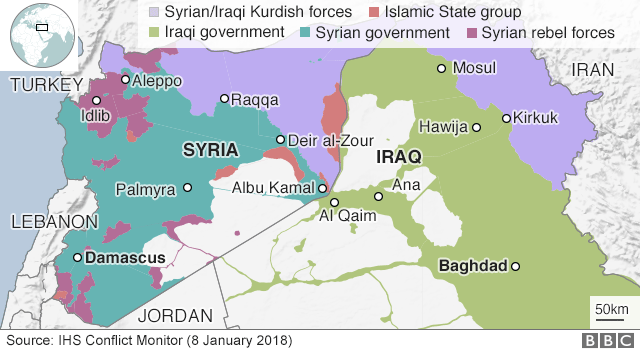Turkish media publishes photos of 415 YPG fighters killed in Afrin
By Leith Aboufadel
-
16/02/2018

BEIRUT, LEBANON (7:35 A.M.) – The Turkish media posted a collage of pictures on Wednesday that showed the photos of more than 400 YPG fighters killed during Operation Olive Branch.
Based on the photo collage, at least 415 members of the YPG had been killed in the Afrin region of Aleppo since January 20th of this year.
While this number is rather high, it is substantially less than the 1,500 YPG fighters that have been claimed dead by the Turkish General Staff.
Meanwhile, the Turkish General Staff has acknowledged that at least 31 of their soldiers have been killed since January 20th, with the majority of their dead coming in the last ten days.
Despite their losses, the Turkish Armed Forces and their allies have managed to capture more than ten towns in the Afrin region over the 72 hours, leaving them in control of 11 percent of this area.
By Leith Aboufadel
-
16/02/2018

BEIRUT, LEBANON (7:35 A.M.) – The Turkish media posted a collage of pictures on Wednesday that showed the photos of more than 400 YPG fighters killed during Operation Olive Branch.
Based on the photo collage, at least 415 members of the YPG had been killed in the Afrin region of Aleppo since January 20th of this year.
While this number is rather high, it is substantially less than the 1,500 YPG fighters that have been claimed dead by the Turkish General Staff.
Meanwhile, the Turkish General Staff has acknowledged that at least 31 of their soldiers have been killed since January 20th, with the majority of their dead coming in the last ten days.
Despite their losses, the Turkish Armed Forces and their allies have managed to capture more than ten towns in the Afrin region over the 72 hours, leaving them in control of 11 percent of this area.









 Image copyrightAFP Image captionRussia gave no details about Russian volunteers fighting in Syria
Image copyrightAFP Image captionRussia gave no details about Russian volunteers fighting in Syria Image captionYevgeny Alikov's mother, Nina Atyusheva, with her dead son's identification tag
Image captionYevgeny Alikov's mother, Nina Atyusheva, with her dead son's identification tag
Comment